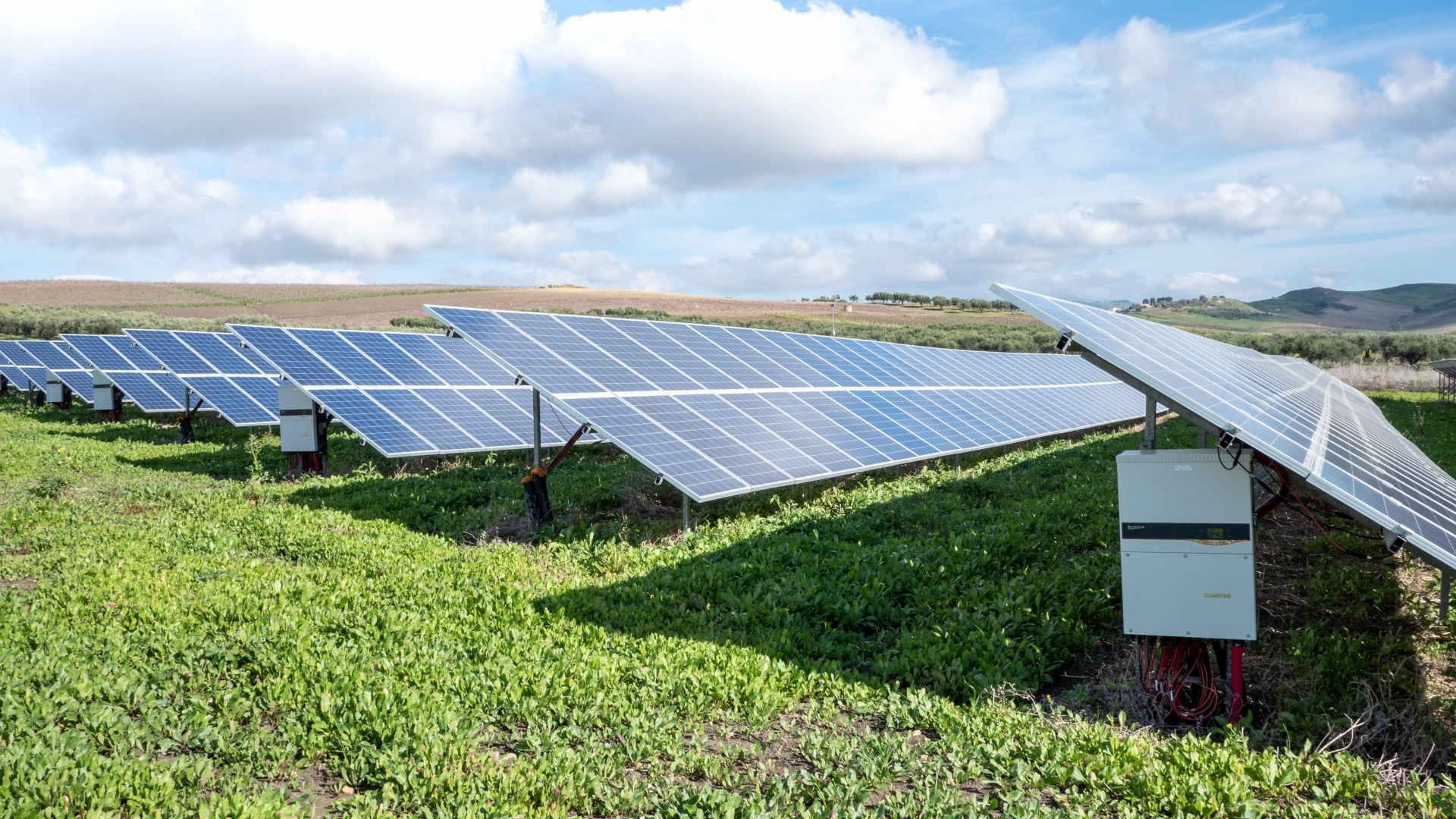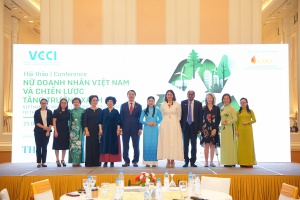Sustainability a top priority for CxOs
 |
When asked to rank the issues most pressing to their organisations, many CxOs rated climate change as a 'top three issue', ahead of 'innovation', 'competition for talent', and 'supply chain challenges'. In fact, only 'economic outlook' ranked slightly higher. Moreover, 75 per cent of CxOs said their organisations have increased their sustainability investments over the past year, with nearly 20 per cent saying they’ve increased investments 'significantly'.
Deloitte built upon past research by surveying more than 2,000 CxOs across 24 countries to gauge concerns from business leaders on climate change and sustainability. The report also identifies key recommendations to accelerate progress to a low-carbon economy.
“If there was any doubt that climate change is an enduring part of the business agenda, the increased focus on sustainability by leaders over the past year should put it to rest," said Deloitte Global CEO Joe Ucuzoglu. "In a year of continued uncertainty, disruption, and competing business challenges, leaders ranked climate change as a top issue.”
“The path to a more sustainable future will take time, it will require investment, and it will be driven by new and innovative technologies and approaches,” he added.
Almost every CxO surveyed said their organisation has felt the impacts of climate change over the past year. 46 per cent reported 'resource scarcity/cost of resources' as the top issue already impacting their companies, while 45 per cent highlighted 'changing consumption patterns or preferences related to climate change', and 43 per cent reported 'regulation of emissions' as the other top issues impacting their companies. Additionally, around a third of executives said climate change is negatively affecting their employees’ physical and mental health.
82 per cent of executives said they have been personally impacted by climate events over the past year, with extreme heat the most frequently cited issue, and 62 per cent said they feel concerned or worried about climate change all or most of the time.
Despite these concerns, 78 per cent of leaders are optimistic the world will take sufficient steps to avoid the worst effects of climate change, and 84 per cent agreed that global economic growth can be achieved while also reaching climate change goals.
“Our survey tells us that CxOs believe that the global economy can continue to grow while reaching climate goals and reducing greenhouse gas emissions,” says Jennifer Steinmann, Deloitte Global Sustainability & Climate Practice Leader.
Meeting increased stakeholder demands
Deloitte’s survey finds that organisations are feeling broad pressure to act on climate change from across their stakeholder groups. 66 per cent of organisations say they are feeling pressure from their shareholders and investors, and 64 per cent from their employees and society.
Employee activism is specifically driving increased action, with more than half of CxOs saying employee pressure on climate matters led their organisations to increase sustainability actions over the last year; 24 per cent said employee activism led to a 'significant' increase. Regulation is also influential, as 65 per cent of CxOs said the changing regulatory environment caused them to increase climate action over the last year.
In line with last year’s report, CxOs chose 'brand recognition and reputation', 'customer satisfaction', and employee morale and wellbeing' as three of the four top benefits of their companies’ sustainability efforts, suggesting many CxOs see climate actions as a way to strengthen stakeholder relationships.
59 per cent of businesses are using more sustainable materials and are increasing the efficiency of energy use, while around half are training employees on climate change and developing new climate-friendly products or services. 43 per cent are updating or relocating facilities to make them more climate change resistant, with 40 per cent purchasing insurance coverage against extreme weather risks. 36 per cent are offering financial assistance to employees who have been impacted by extreme weather.
However, as seen last year, companies are less likely to implement action that demonstrate they have embedded climate considerations into their cultures and have the senior leader buy-in and influence to effect meaningful transformation. For example, 21 per cent of CxOs indicated their organisations have no plans to tie senior leader compensation to environmental sustainability performance, and 30 per cent said they have no plans to lobby governments for climate initiatives.
Additionally, when asked how serious certain groups are about addressing climate change, only 29 per cent of CxOs said they believe the private sector is 'very serious'. Nearly a quarter of CxOs said the difficulty of measuring their organisations’ environmental impact was a top barrier to increased action, and nearly one-fifth cited cost and focus on near-term issues as barriers.
And while many organisations are concerned about a 'just transition' – which seeks to ensure the substantial benefits of transitioning to a low-carbon economy are shared widely and support those who stand to lose economically–prioritisation of this issue varies considerably by region and country. The Asia Pacific region is especially focused on a just transition, while some European countries and the US are less likely to see this issue as a priority.
Deloitte’s 2023 survey strongly suggests that CxOs do believe that both their organisations and the global economy can continue to grow while reaching climate goals and reducing greenhouse gas emissions. So, how can they help close the gap between ambition and impact, break through the barriers to greater action, and start to balance the near-term costs of climate initiatives with the long-term benefits?
The report offers several recommendations to help CxOs get started, including embedding climate goals into their business’s overall strategy and purpose, building trust by taking credible climate action, empowering the board, encouraging stakeholder action, investing in new technology, and collaborating to drive systems-level change.
Tran Thuy Ngoc, sustainability and climate leader, Deloitte Vietnam said, “CxOs in Vietnam have also felt the impact of climate change on their businesses. Businesses may have different concerns, but they all need to shift their mindset to take more urgent action. We hope that this report will provide useful information, such as recommendations to build a comprehensive action plan, and specific actions that major organisations around the world are undertaking, so Vietnamese businesses can begin their own sustainability journey and transition to a better future.”
 | Net-Zero: Challenges and opportunities for Vietnamese businesses The process of the net-zero green transformation is urgent for Vietnamese enterprises, yet many are still mulling over where to start. |
 | Vietnamese female entrepreneurs take the lead in boosting green growth On March 25, the Vietnam Association for Women Entrepreneurs (VAWE) held a seminar on female business leadership and green growth with the Vietnam Women Entrepreneurs Council, a part of the Vietnam Chamber of Commerce and Industry (VCCI). |
What the stars mean:
★ Poor ★ ★ Promising ★★★ Good ★★★★ Very good ★★★★★ Exceptional
Related Contents
Latest News
More News
- VNPAY and NAPAS deepen cooperation on digital payments (February 11, 2026 | 18:21)
- Vietnam financial markets on the rise amid tailwinds (February 11, 2026 | 11:41)
- New tax incentives to benefit startups and SMEs (February 09, 2026 | 17:27)
- VIFC launches aviation finance hub to tap regional market growth (February 06, 2026 | 13:27)
- Vietnam records solid FDI performance in January (February 05, 2026 | 17:11)
- Manufacturing growth remains solid in early 2026 (February 02, 2026 | 15:28)
- EU and Vietnam elevate relations to a comprehensive strategic partnership (January 29, 2026 | 15:22)
- Vietnam to lead trade growth in ASEAN (January 29, 2026 | 15:08)
- Japanese business outlook in Vietnam turns more optimistic (January 28, 2026 | 09:54)
- Foreign leaders extend congratulations to Party General Secretary To Lam (January 25, 2026 | 10:01)

 Tag:
Tag:




















 Mobile Version
Mobile Version